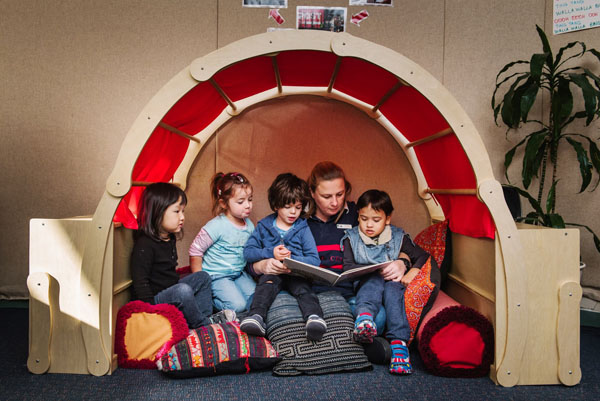Supporting Children and Families from Diverse Backgrounds - 2-part online series
Description
Part 1- Wednesday 3 April: 4.30pm – 6.00pm
Part 2 - Wednesday 10 April: 4.30pm – 6.00pm
Australia is one of the most diverse multicultural/multilingual countries in the world with more than 250 ancestries and 350 languages spoken in the community (ABS, 2021).
Much of Australia’s diversity is found in the rich reservoir of cultural, linguistic, and social capital produced in languages and cultures that make up Australia's diverse society. This is of national significance and forms the basis of what is currently Australia’s social policy of multiculturalism. With large numbers of children in early childhood education from diverse language and cultural backgrounds, it is essential that educators understand and appreciate the importance of providing opportunities for culturally and linguistically responsive pedagogies, policies, and practices relevant to our multicultural society that acknowledge the significance of children’s home languages, sociocultural practices, and the negotiation of identity in their everyday lives.
Part 1
During Part 1 of the series will explore ways in which educators can “recognise that diversity contributes to the richness of our society and provides a valid evidence base about ways of knowing.” (EYLFv2.0, 2022. p. 16). Educators will have opportunities to build on and make connections to the principles, practices and learning outcomes outlined in the Framework highlighting how they can create a sense of belonging that welcomes children and families from diverse cultures, traditions, languages, and ways of being.
Part 2
In NSW alone, 323 languages are spoken by young children aged from birth to six years, with 25% of these children speaking languages other than English (AEDC, 2018). Due to this, it is not surprising that there are large numbers of children from multilingual backgrounds attending early childhood settings. Therefore, it is essential that educators, families, communities, and policy makers appreciate the importance of providing opportunities for supporting and extending children’s home languages in the early years.
In part 2 of the series, we will explore the role of children’s home languages in building sociocultural, intellectual, and linguistic capacity and the benefits of multilingualism for children, families, and communities. A range of educational strategies and implications will be discussed that assist in supporting and extending children’s home languages and languages learning. There will be links to the principles, practices and learning outcomes outlined in the EYLFv2.0 that support and extend children’sKU home languages and multilingualism throughout the day.
Australian Professional Standards for Teachers
Standard 1: Know children and how they learn.
National Quality Standard –
Quality Area 1: Educational program and practice
Quality Area 6: Collaborative partnerships with families and communities
Presenter
Dr Criss Jones Diaz
Criss Jones Diaz is Senior Lecturer in the School of Education at Western Sydney University and a Researcher in the Centre for Educational Research. She has been a teacher educator for over twenty years. Prior to her commencement at the University of Western Sydney, she taught English as an additional language in Central America and the Caribbean where she learnt Spanish as an additional language. Her professional background is grounded in education and community contexts where she has collaborated with educators providing professional development on early literacies, bi/multilingualism, languages learning and diversity issues. Her research and publications focus on languages, literacies, and identity negotiation in contexts of diversity and difference. Recent prominent co-authored and co-edited texts include ‘Diversity and Difference in Childhoods: Issues for Theory and Practice’ (2016, 2nd Ed); ‘Understanding sociological theory and pedagogical practices’ (2015, 2018, 3nd Ed forthcoming (2024).
Image
